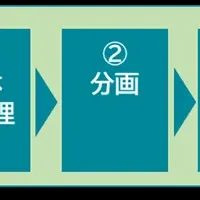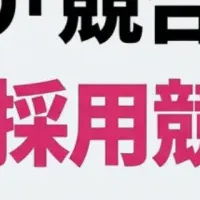
Large Employers Contemplating ICHRA Adoption Amid Economic Challenges from Tariff Uncertainties
In a recent publication by SureCo titled "2025 State of ICHRA Report," a significant trend has emerged among large employers responding to economic challenges — nearly half are contemplating a transition to Individual Coverage Health Reimbursement Arrangements (ICHRAs). This growing consideration is driven largely by fears of escalating healthcare costs linked to tariff uncertainties and a potential recession. While companies navigate these turbulent economic waters, understanding the impacts of such policies becomes critically important.
Understanding ICHRA
The Individual Coverage Health Reimbursement Arrangement (ICHRA) was developed during the Trump administration as a means to provide employers with flexibility in offering health insurance that aligns better with individual employee needs. Unlike traditional employer-sponsored health plans, ICHRAs allow employers to allocate specific amounts of money to employees for purchasing their health insurance directly. This model provides financial predictability for both the employer and the employee.
The Statistics Behind the Shift
SureCo's report reveals that about 35% of brokers are now recommending ICHRAs to their clients, a notable increase from the previous year. Furthermore, 94% of employers who have made the switch report that their decision was the right one, signaling a high level of satisfaction with this model. Interestingly, 91% of employees express satisfaction with their insurance plans after transitioning to ICHRAs, illustrating the potential benefits of this approach.
Cost Management and Economic Factors
One of the pressing reasons behind the adoption of ICHRAs is the soaring health insurance premiums expected for 2025. Over one-third of large employers indicate they are facing premium hikes exceeding 10%, with 44% feeling unable to absorb these increases. ICHRAs can alleviate this strain by allowing companies to save an average of 23% on premiums by utilizing a defined contribution approach that can be initiated at any point in the year. This flexibility can be crucial in times of economic uncertainty.
Finding Support in Bipartisan Consensus
Despite its origins, ICHRA has garnered bipartisan support, and the report underscores this sentiment. Approximately 85% of employers and 79% of insurance brokers speculate that the political landscape will remain favorable for ICHRAs in the coming months. This likely forecast amplifies the growing interest among large groups, suggesting a shift in the health insurance ecosystem at large.
A New Dawn for Healthcare
Matthew Kim, the CEO of SureCo, expresses optimism about the future of ICHRAs, stating that enterprise organizations are proving the viability of these arrangements for larger companies, effectively challenging the notion that ICHRAs are merely suited for small businesses. With healthy risk pools and significant purchasing power, large firms are catalyzing a change that benefits various stakeholders involved.
Conclusion
As employers increasingly lean toward ICHRAs as a response to economic pressures, the implications for the health insurance landscape in America are profound. With reports like SureCo's shedding light on the preferences and behaviors associated with ICHRA adoption, the future appears to hold exciting opportunities for employees and employers alike. To explore the comprehensive insights into how ICHRA is reshaping the insurance landscape, professionals are encouraged to download the full report at sureco.com/2025-ichra-report.
For those keen on deeper insights or to arrange interviews with key executives from SureCo to discuss the implications of the findings, you may contact Lindsey Unterberger, VP of Marketing at SureCo.
SureCo continues to navigate this innovative space, aiming to bridge the gap between employee needs and effective healthcare coverage.
Understanding ICHRA
The Individual Coverage Health Reimbursement Arrangement (ICHRA) was developed during the Trump administration as a means to provide employers with flexibility in offering health insurance that aligns better with individual employee needs. Unlike traditional employer-sponsored health plans, ICHRAs allow employers to allocate specific amounts of money to employees for purchasing their health insurance directly. This model provides financial predictability for both the employer and the employee.
The Statistics Behind the Shift
SureCo's report reveals that about 35% of brokers are now recommending ICHRAs to their clients, a notable increase from the previous year. Furthermore, 94% of employers who have made the switch report that their decision was the right one, signaling a high level of satisfaction with this model. Interestingly, 91% of employees express satisfaction with their insurance plans after transitioning to ICHRAs, illustrating the potential benefits of this approach.
Cost Management and Economic Factors
One of the pressing reasons behind the adoption of ICHRAs is the soaring health insurance premiums expected for 2025. Over one-third of large employers indicate they are facing premium hikes exceeding 10%, with 44% feeling unable to absorb these increases. ICHRAs can alleviate this strain by allowing companies to save an average of 23% on premiums by utilizing a defined contribution approach that can be initiated at any point in the year. This flexibility can be crucial in times of economic uncertainty.
Finding Support in Bipartisan Consensus
Despite its origins, ICHRA has garnered bipartisan support, and the report underscores this sentiment. Approximately 85% of employers and 79% of insurance brokers speculate that the political landscape will remain favorable for ICHRAs in the coming months. This likely forecast amplifies the growing interest among large groups, suggesting a shift in the health insurance ecosystem at large.
A New Dawn for Healthcare
Matthew Kim, the CEO of SureCo, expresses optimism about the future of ICHRAs, stating that enterprise organizations are proving the viability of these arrangements for larger companies, effectively challenging the notion that ICHRAs are merely suited for small businesses. With healthy risk pools and significant purchasing power, large firms are catalyzing a change that benefits various stakeholders involved.
Conclusion
As employers increasingly lean toward ICHRAs as a response to economic pressures, the implications for the health insurance landscape in America are profound. With reports like SureCo's shedding light on the preferences and behaviors associated with ICHRA adoption, the future appears to hold exciting opportunities for employees and employers alike. To explore the comprehensive insights into how ICHRA is reshaping the insurance landscape, professionals are encouraged to download the full report at sureco.com/2025-ichra-report.
For those keen on deeper insights or to arrange interviews with key executives from SureCo to discuss the implications of the findings, you may contact Lindsey Unterberger, VP of Marketing at SureCo.
SureCo continues to navigate this innovative space, aiming to bridge the gap between employee needs and effective healthcare coverage.
Topics Health)










【About Using Articles】
You can freely use the title and article content by linking to the page where the article is posted.
※ Images cannot be used.
【About Links】
Links are free to use.